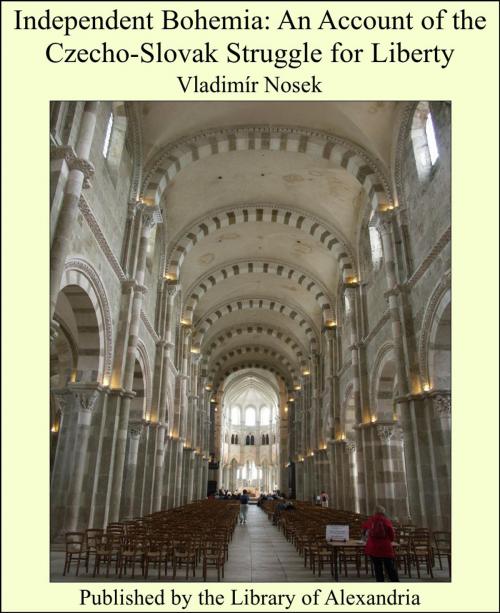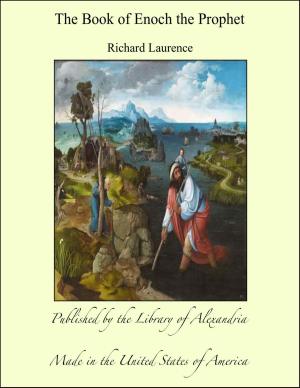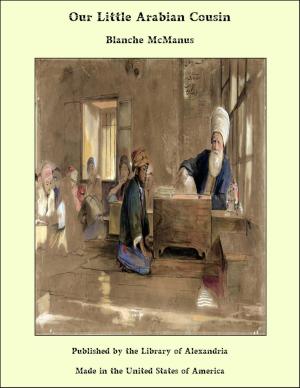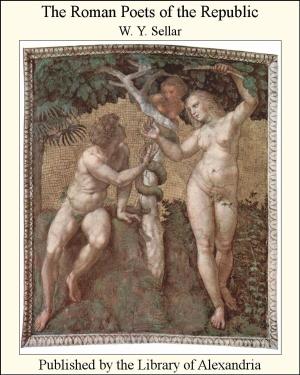Independent Bohemia: An Account of the Czecho-Slovak Struggle for Liberty
Nonfiction, Religion & Spirituality, New Age, History, Fiction & Literature| Author: | Vladimír Nosek | ISBN: | 9781465511768 |
| Publisher: | Library of Alexandria | Publication: | March 8, 2015 |
| Imprint: | Language: | English |
| Author: | Vladimír Nosek |
| ISBN: | 9781465511768 |
| Publisher: | Library of Alexandria |
| Publication: | March 8, 2015 |
| Imprint: | |
| Language: | English |
In the following pages I have attempted to outline the story of our movement for independence. The manuscript of this book was completed over four months ago. Since then many important changes have occurred in the international situation. Chapters in which we dealt with the then still existing Dual Monarchy must of course be read in the past tense, since Austria exists no more. And again, many things which we anticipated and hoped for in the future have already become accomplished facts. However, I trust that the story itself has not only lost none of its value thereby, but has acquired an additional interest from a historical point of view. Our aim of national independence, only quite recently declared by our adversaries to be "an empty dream of moonstruck idealists," has become to-day not only a practical proposition, but an accomplished fact. We have our own army, which is by no means the smallest Allied army, and we also have our own Provisional Government in Paris, recognised not only by the Allies and by all Czecho-Slovaks abroad, but even by Czech leaders in Bohemia, with whom we have since the beginning of the war worked in complete harmony and understanding. The organisation of our independent State is rapidly proceeding. Austria-Hungary, exhausted economically and bankrupt politically, has fallen to pieces by the free-will of her own subject peoples, who, in anticipation of their early victory, broke their fetters and openly renounced their allegiance to the hated Habsburg and Hohenzollern rule, even before Austria had actually surrendered to the Allies. Events have moved rapidly in Austria, especially since the momentous British declaration of August 9, 1918, recognising the Czecho-Slovaks--those resident in the Allied countries as much as those in Bohemia--as an Allied nation, and the Czecho-Slovak National Council--in Paris as well as in Prague--as the Provisional Government of Bohemia. British statesmen already then foresaw the coming collapse of Austria and acted accordingly.
In the following pages I have attempted to outline the story of our movement for independence. The manuscript of this book was completed over four months ago. Since then many important changes have occurred in the international situation. Chapters in which we dealt with the then still existing Dual Monarchy must of course be read in the past tense, since Austria exists no more. And again, many things which we anticipated and hoped for in the future have already become accomplished facts. However, I trust that the story itself has not only lost none of its value thereby, but has acquired an additional interest from a historical point of view. Our aim of national independence, only quite recently declared by our adversaries to be "an empty dream of moonstruck idealists," has become to-day not only a practical proposition, but an accomplished fact. We have our own army, which is by no means the smallest Allied army, and we also have our own Provisional Government in Paris, recognised not only by the Allies and by all Czecho-Slovaks abroad, but even by Czech leaders in Bohemia, with whom we have since the beginning of the war worked in complete harmony and understanding. The organisation of our independent State is rapidly proceeding. Austria-Hungary, exhausted economically and bankrupt politically, has fallen to pieces by the free-will of her own subject peoples, who, in anticipation of their early victory, broke their fetters and openly renounced their allegiance to the hated Habsburg and Hohenzollern rule, even before Austria had actually surrendered to the Allies. Events have moved rapidly in Austria, especially since the momentous British declaration of August 9, 1918, recognising the Czecho-Slovaks--those resident in the Allied countries as much as those in Bohemia--as an Allied nation, and the Czecho-Slovak National Council--in Paris as well as in Prague--as the Provisional Government of Bohemia. British statesmen already then foresaw the coming collapse of Austria and acted accordingly.















